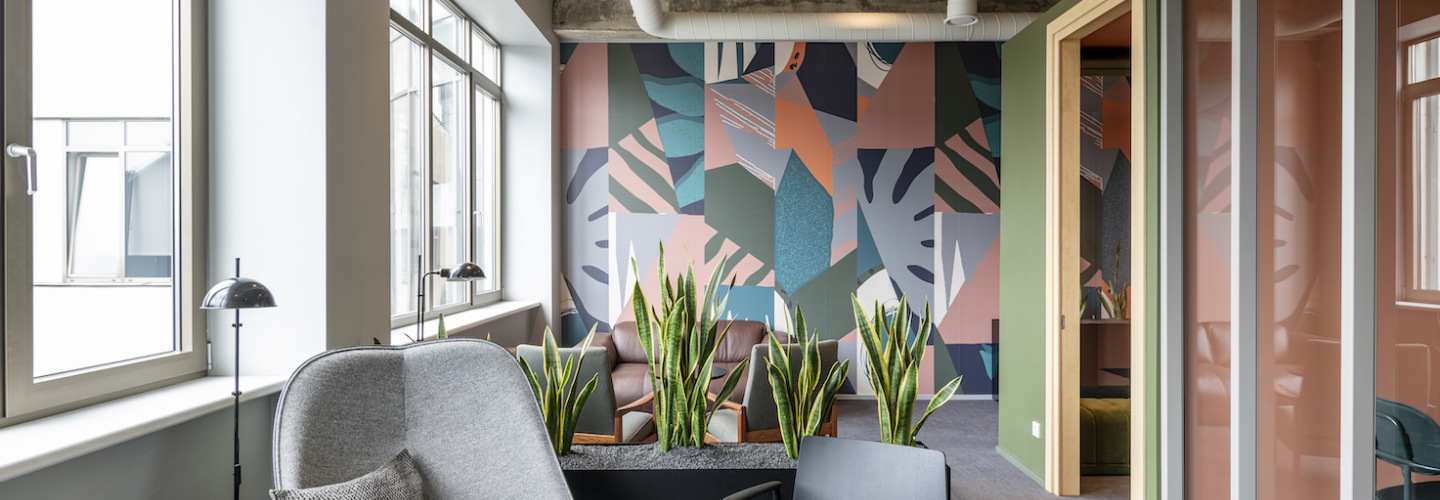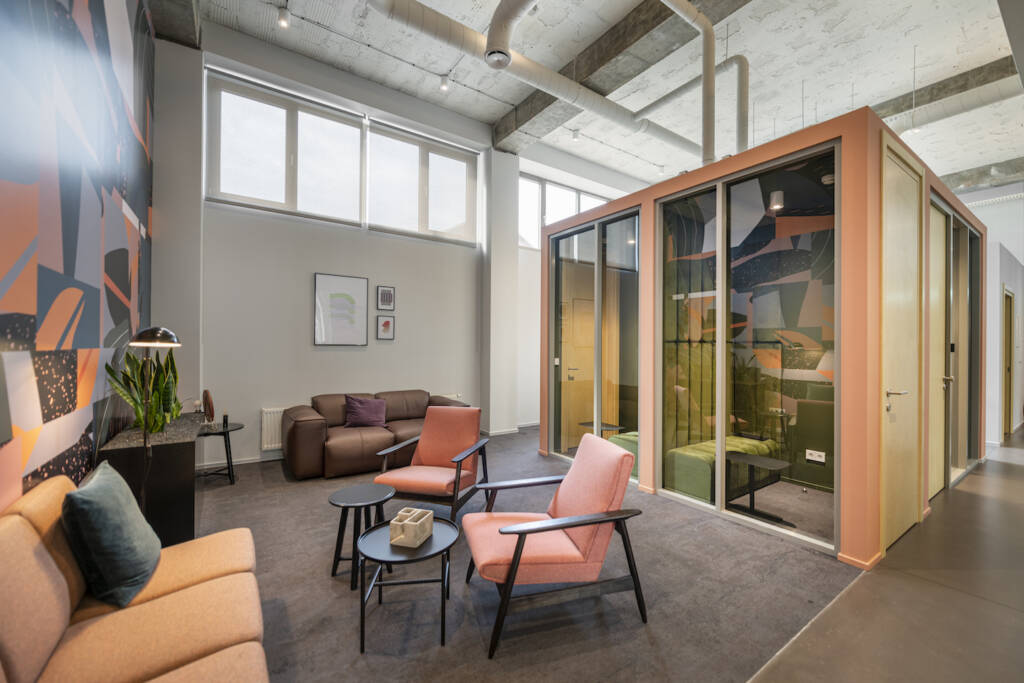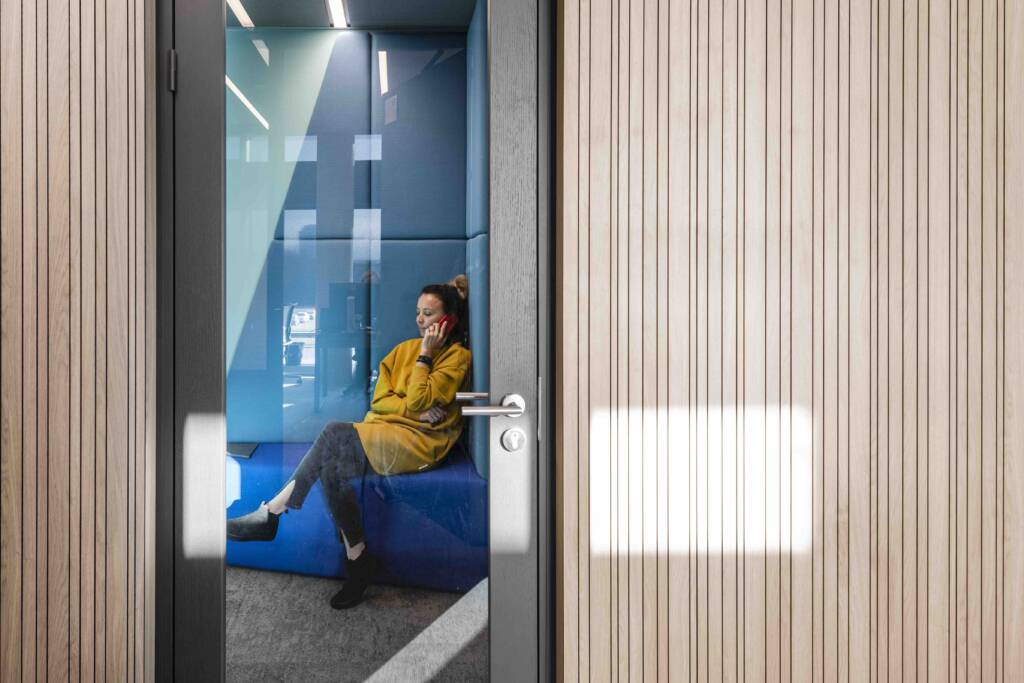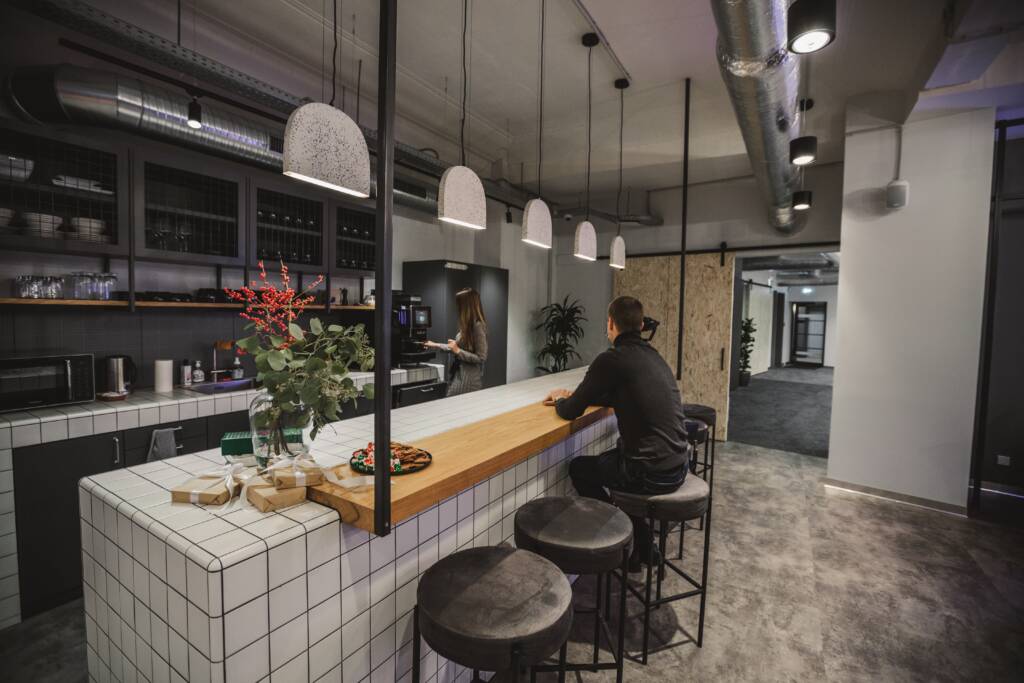We often dream about working in a cottage or under a palm tree, laptop in our lap, phone in one hand and coffee (or coconut) in another… However, most of us still need and to be honest, prefer a more suitable place for focusing on all the necessary equipment and services. We also require a place to hold meetings with clients and brainstorm to exchange ideas with teammates. Coworking centres, where different companies work together under one roof, got their wings backed by IT and start-up companies. By now, many traditional enterprises, consulting firms, small and medium-sized offices, local teams of international brands, and freelancers choose to set up their business in similar centres.
The culture of cooperation centres has made its way well to Baltic countries. Within the last six months, Workland has opened 3 new centres, Workland Telegraph in Riga, Latvia, Workland Quadrum in Vilnius and Workland Laisves in Kaunas, Lithuania. Indrek Hääl, the founder and board member of Workland, believes that coworking centres have come to stay. “Coworking is no longer a trend only among start-ups as people in other areas also have embraced coworking centres and highly value their flexible capabilities,” he says. He explains that when renting a regular office often requires a long-term contract, furniture, office equipment, coffee machine and an internet connection; then the coworking centres have it all. “Just bring your computer and get to work,” Hääl added. It is estimated that by 2024, 5 million people worldwide will use coworking. In Estonia, Latvia and Lithuania, the number of workstations in coworking centres is expected to double – at least 11,000 from the current 6,000 workstations within the next few years. “The number might be even more significant after the economic disruption due to Covid-19 as many companies are re-evaluating their need for office space and switch to favour more flexible solutions,” added Hääl. The industry is quickly recovering from the impact of Covid-19, and some regions have already reached pre-crisis levels.
Environment stimulating brainwork
Although there are many reasons why one should choose to work at a coworking centre, the location and interior design always remain the most important. “When you ask people where they would like to go to work, they prefer the city centre, that is easily reachable from everywhere. However, setting up a modern office in a central location can be quite expensive. Still, in a coworking centre, even a micro-company can enjoy the luxury of a downtown office at a reasonable price,” Hääl explains the success of city-centre offices.
According to Tiina Saar-Veelmaa, a psychologist and researcher, in Estonia, it became clear that the work environment influences well-being and workplace happiness at the beginning of the so-called Skype era. “At first, cool work environments were established as a competitive edge and to hire the best people. But as the environment became more thoughtful, it got clearer that it has positive effects on relationships and commitment. It turned out that a cool office is not just a bonus or a nice to have detail, but has a direct and measurable influence on efficiency and quality of work,” she explains.
According to Veelmaa, the most significant advantage of coworking centres is that they can apply best practices, knowledge of spatial psychology, and about the impact the environment has on people. “We naturally need cosiness because we are born from a warm, confined environment. When we are young, the desire to build a hut, to create a nest and at the same time to discover the world, to find new exciting paths accompanies us,” she says. So, the room has to be both cosy and exciting to stimulate the brain so that it would bring out the best in us. People are different, and it is often difficult to take everyone’s wishes into one workplace. “In coworking centres, there are places for different tastes and preferences. On a day when I’m open and want to talk to others, get new ideas, I can be in an open office place, but I can find myself a quiet corner for tasks that require concentration,” she adds. Modern collaboration centres like Workland have all that covered – a quiet area for an excellent working focus, phone booths for calls, meeting rooms, a comfortable kitchen, areas for chatting and brainstorming.
New contacts from the community
According to the founder of Workland, Indrek Hääl, the opportunities for networking and exchange of experience also play an essential role in the popularity of the centres, especially for smaller companies and freelancers. “The role of the social side in work culture is growing, and opportunities how to grow a professional network are constantly sought. Even though you can be a business with just a few employees, coworking brings in a bunch of additional coworkers to exchange ideas within the coffee corner. These people can turn out to be your cooperation partners or customers! Besides, community managers organize educational and entertaining events for members to support our sense of belonging,” said Hääl.
Veelmaa recommends learning the best tips about networking and leisure from our Western neighbours. “The Swedes have a good find – fika – an official coffee break with colleagues, where you do not talk about work, but give the brain some down-time and build new relationships. This is precisely the purpose of the joint kitchens on coworking centres. Unlike the coffee corners of regular workplaces, she says, in the kitchens’ of coworker centres, complaining about the bosses, processes and other issues are not on the table. “People working at coworking centres are mostly motivated and encouraged about their work and take the initiative for a better life. Good relationships and a sense of community are the most important component of a permanent or eudaimonic feeling of happiness,” she adds. Veelmaa adds that if there are people around us who we admire and whose thoughts inspire us, it will kindle us and make us feel appreciated.
“A very good working atmosphere makes people focus on their goals, and people perceive greater flexibility, relevance and success in their work. It also inspires outsiders and is probably why more and more large companies are offering their team members the opportunity to work from time to time at coworking centres,” Hääl, the founder of Workland, confirms.
Not just trendy
Coworking is not just a trend, it has established its position among flexible ways of working. The largest international real estate companies estimate that coworking centres will make up about one-fifth of commercial real estate in five years. “Many companies have not yet thought that it would be much easier and more convenient renting an office in a coworking centre – take a computer and start work instead of setting up and running an office on their own. The centre deals with day-to-day administrative matters, from stocking up on milk for the coffee to setting up a printer or meeting room, so you should not spend your valuable time on it,” Hääl encourages to explore the capabilities of collaboration centres. “Of course, alongside practical issues, we cannot overlook the softer values that inspire and motivate us,” he adds.








